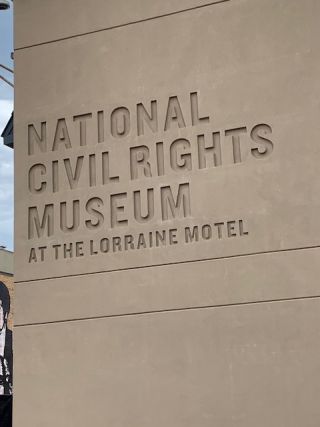TRAUMA- Ignoring the Past: The Cost to Cops and Everyone Else. A Personal Perspective: Facing history can be both painful and beneficial. Reviewed by Lybi Ma

KEY POINTS-
- Police officers can benefit from learning about the painful past of law enforcement in America.
- Inter-generational trauma affects people in three ways—biologically, socially, and psychologically.
- Traumatic memories have no expiration date and may contribute to how communities of color view police.
- Trauma, including collective trauma, is the inability to forget.

I am Jewish by heritage and a second-generation American. With the rise of anti-Semitism in the U.S. and worldwide, I feel alarmed. My paternal grandparents came to America from Russia to escape conscription by the Czar. The discrimination they and my parents experienced in America has been minimal: restricted motels that didn’t allow Jews, some slurs, and some segregation. Why then, with the rise in anti-Semitism, do I have a palpable sense of fear and a growing hyper-vigilance? The answer is a phenomenon psychologists call trans-generational or inter-generational trauma.
What Is Intergenerational Trauma? The American Psychological Association describes inter-generational trauma as happening when the descendants of people who have been traumatized show adverse emotional and behavioral reactions similar to those of their ancestors.
What Are Its Effects? The effects of trans-generational trauma have been documented by research in three areas: biological (cellular changes affecting the brain, hormone regulation, and gene expression); social (difficulty parenting, bonding with children, building relationships), psychological (symptoms similar to post-traumatic stress injury), or a mix of all three.
Some background: Last week I was part of the panel “The Restoration: Community Healing for Solutions to Police Violence,” sponsored by the National Civil Rights Museum in Memphis, Tennessee. Our panel examined the historical connections of racial violence, opportunities for collective healing, and collaborative, trauma-informed interventions that reduce police violence and improve community-police relations.
At the Civil Rights Museum, we examined the history of the civil rights movement in the U.S. beginning with slavery. The Museum is located at the Lorraine Motel where Dr. Martin Luther King was assassinated. It was a powerful experience, emotionally and visually.
A complex question and a simple answer: As I walked through the museum, I kept asking myself, why didn’t I know about this event? This person? This tragedy? This act of bravery and courage? This victory? The answer is simple. When I was in school, elementary through undergraduate college, it wasn’t taught. In some places, it still isn’t. In other places, it is currently being actively suppressed. In the culture of policing, it is sometimes denied and too often ignored.
A hard history, the origins of policing: Policing in the southern colonies began as slave patrols. The job of a patrol was to suppress slave rebellions and capture runaway slaves, aiding and abetting a system that dehumanized 12 generations of African Americans during the quarter millennium of enslavement. Later in history, during more than a half-century of Jim Crow America, many in law enforcement, in both the North and the South, participated in an oppressive system enforced by laws, customs, and violence.
A question for today: Why isn’t this history part of academy training? Or better still, pre-academy training before officers become part of the police sub-culture where they are taught to view the world through a much narrower, more contemporary lens. Is it wise to send officers to serve all communities without educating them about the history of racism and white supremacy and the ways in which law enforcement has, and in some places, continues to be involved? Isn't it reckless to ask law enforcement officers to connect with communities of color without understanding the long tentacles of distrust and fear that are part of trans-generational trauma?
This is not finger-pointing or blame. It is education, not accusation. While things are better, it is still difficult to be black or brown in America. It is also increasingly difficult to be blue, no matter your race. Police work is challenging, and dangerous physically and emotionally. Police officers are asked to deal with problems that are the centuries-old consequences of systemic racism. Problems that are better suited to public health solutions, such as mental health, substance abuse, homelessness, inequality of opportunity, and poverty.
It would be naive to suggest that explaining history will fix it or excuse the perpetrators. But neither will avoidance. Avoidance is the cornerstone of trauma. Denying trauma or ignoring the pain it has created and still creates, never makes it go away. It only makes it worse.
I hope you will have an opportunity to visit the National Civil Rights Museum and that unabridged knowledge will connect communities and the cops who serve them to make them both safer.
- Questions and Answers
- Opinion
- Motivational and Inspiring Story
- Technology
- Live and Let live
- Focus
- Geopolitics
- Military-Arms/Equipment
- Segurança
- Economy
- Beasts of Nations
- Machine Tools-The “Mother Industry”
- Art
- Causes
- Crafts
- Dance
- Drinks
- Film/Movie
- Fitness
- Food
- Jogos
- Gardening
- Health
- Início
- Literature
- Music
- Networking
- Outro
- Party
- Religion
- Shopping
- Sports
- Theater
- Health and Wellness
- News
- Culture

